The Ready Child
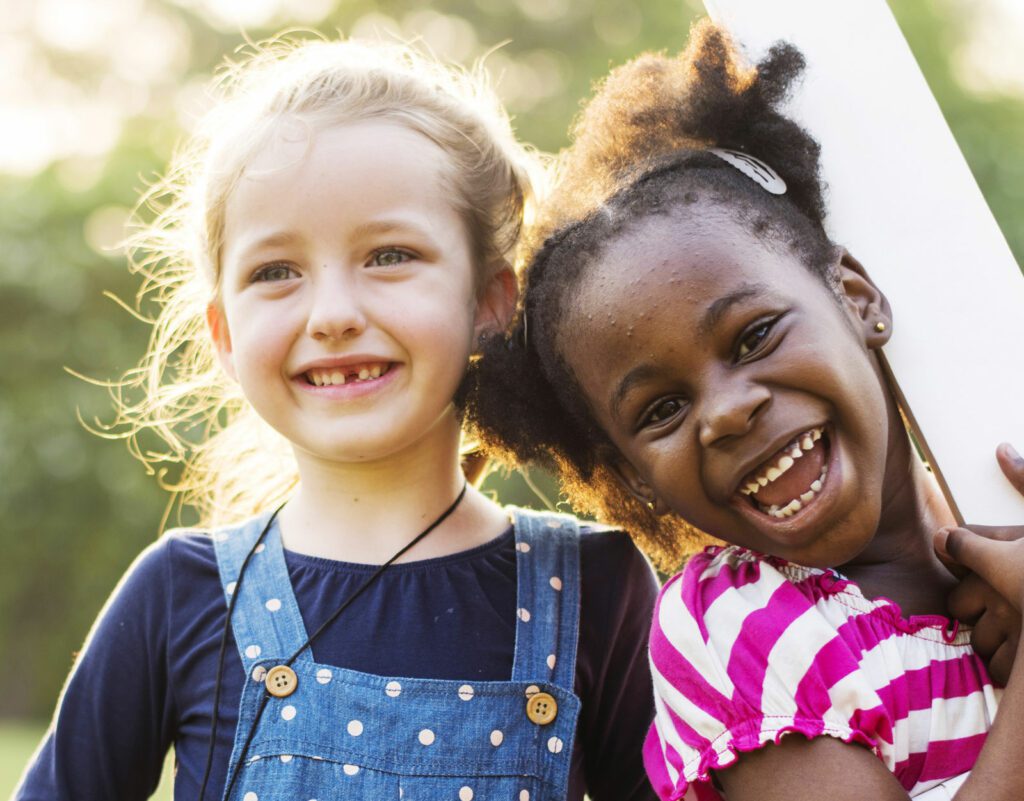
The Ready Child
Kindergarten readiness:
What’s it all about?
There’s more to kindergarten readiness than ABCs and 123s. To get the most out of their kindergarten experience, children need skills and abilities in other areas, from problem-solving and persistence to physical coordination and social-emotional skills.
Click on the circles below to find out more about the five domains of school readiness.
The Ready Child
Cognitive Development
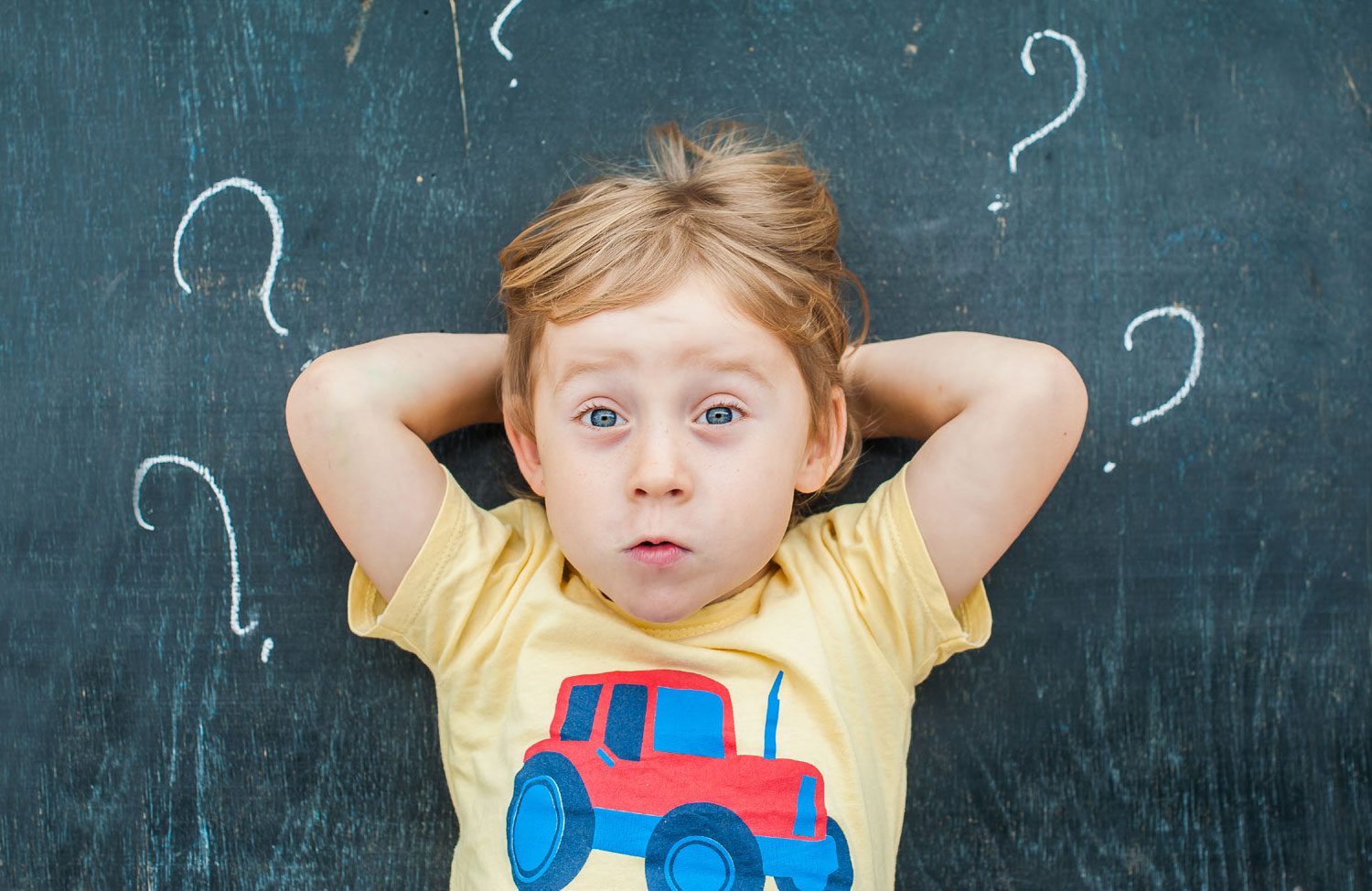
Where are all the dinosaurs?
Why don’t people have tails?
How do birds fly?
Questions like these are a sure sign that young children are beginning to acquire, organize and use information in increasingly complex ways. According to one study, young children ask an average of 73 questions a day!
You can also see cognitive development in action as children think, explore, draw conclusions, learn new words, reason and problem solve. In their quest for understanding and meaning, young children play an active role in their own cognitive development.
Five ways to foster cognitive development in early learners:
- Encourage children to actively explore the world.
- Identify colors and shapes in nature.
- Play counting games.
- Ask open-ended questions such as “What do you think would happen if….”
- Ask children to help you solve a problem.
Now that you know more about the growing mind, try these fun ideas and activities
Social-Emotional Development
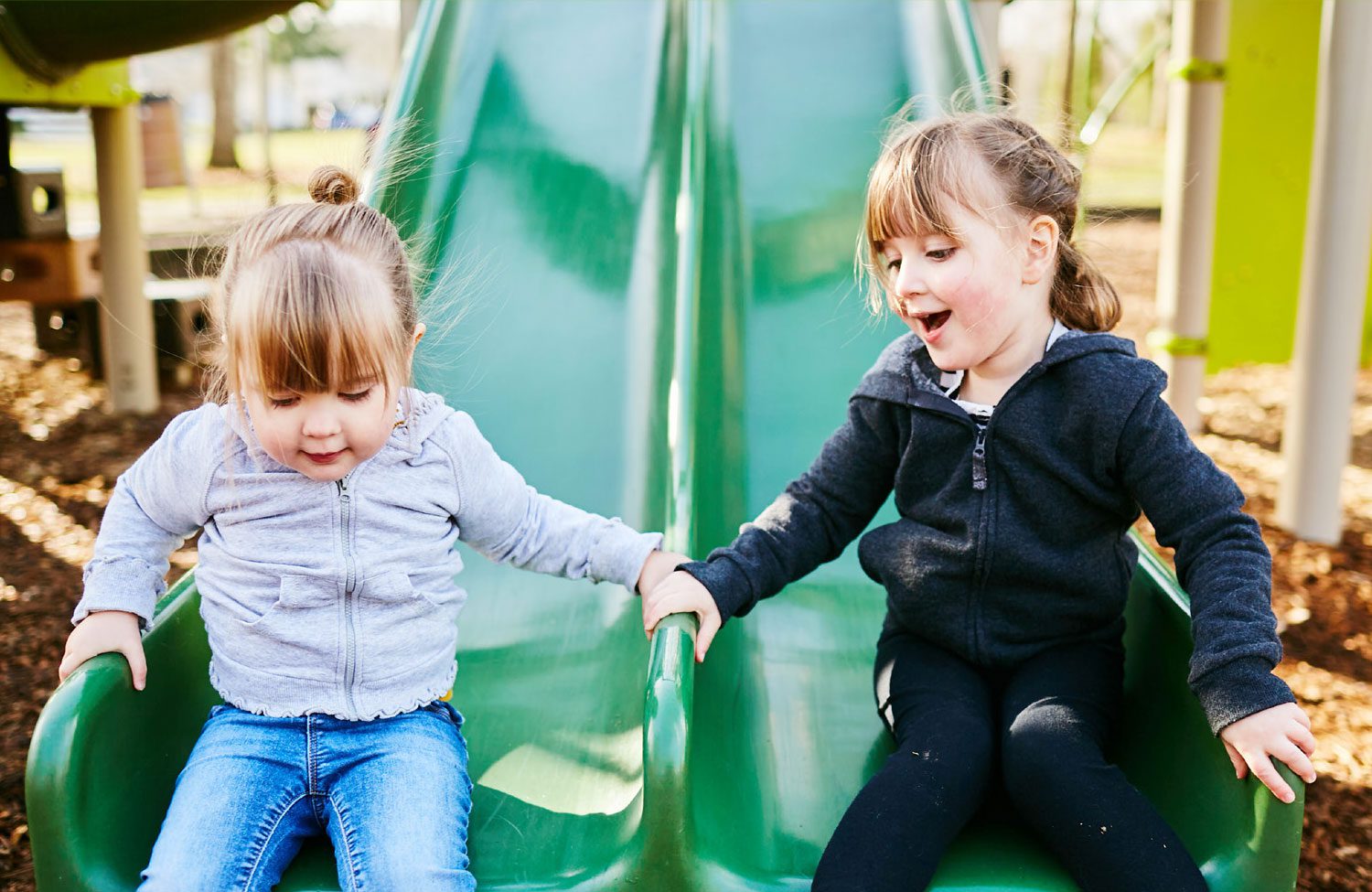
I made a new friend today.
We went down the big slide!
Sally was sad, so I gave her my soft toy.
Statements like these say a lot about a child’s social-emotional development. They show an ability to form close personal relationships, a willingness to tackle new challenges and a capacity for empathy.
Other social-emotional skills include an ability to express and manage emotions, follow directions, take turns and resolve conflicts.
Healthy social-emotional development paves the way for positive development in other domains—and is a better predictor of school success than cognitive performance.
Five ways to foster social-emotional development:
- Talk about emotions during everyday activities.
- Use puppets to act out social situations and help resolve conflicts.
- Play games like "Simon Says" or "Red Light, Green Light" to teach children how to listen carefully, follow instructions and work together.
- Teach coping strategies such as walking away or getting help.
- Read books that help little people deal with big feelings or scary situations, such as A Feel Better Book for Little Worriers or Baxter and Danny Stand Up to Bullying from the Magination Press Social-Emotional Learning Collection.
Now that you know more about the link between social-emotional skills and school success, try these fun ideas and activities
Play and Learning
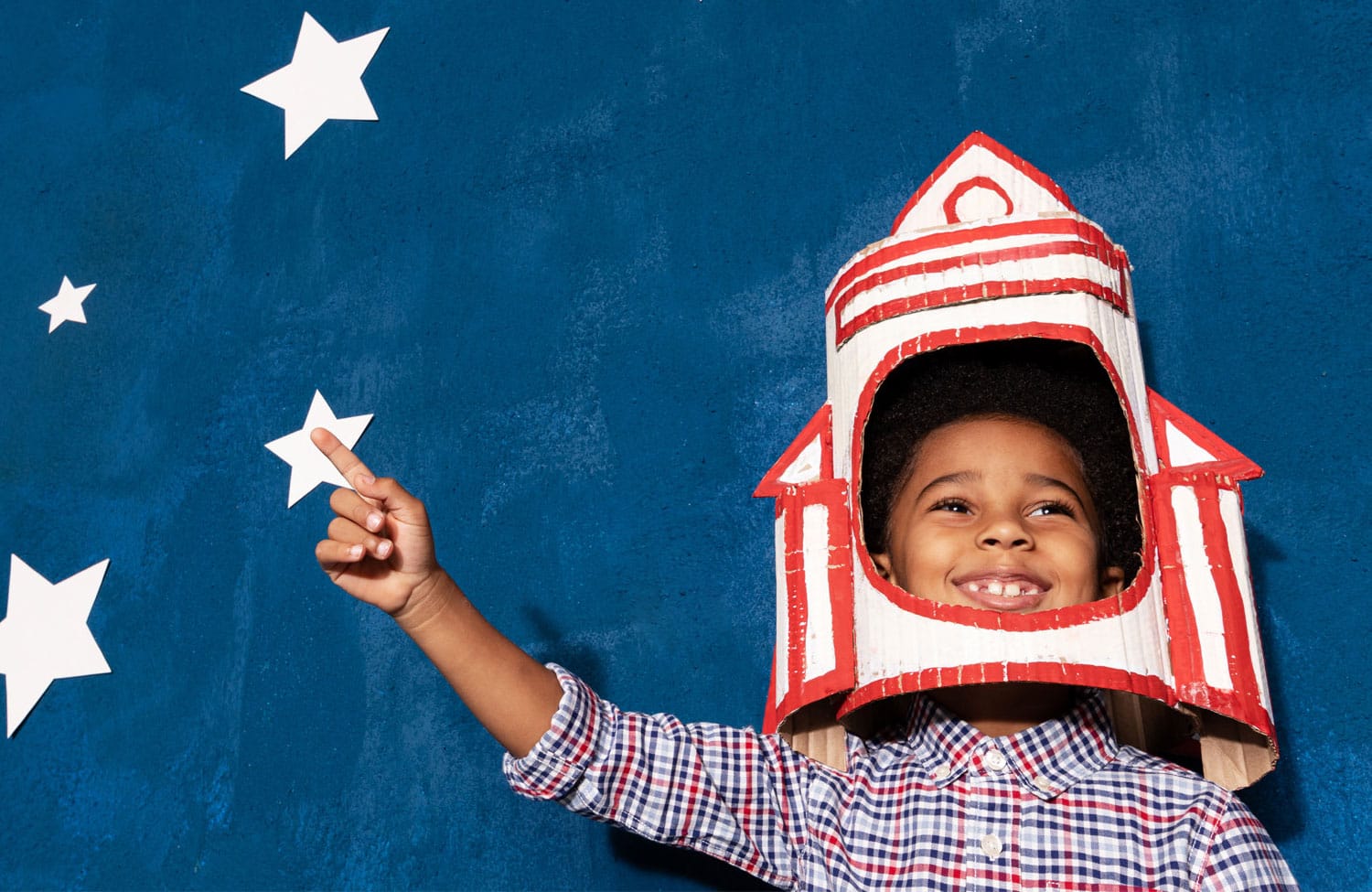
I flew to the moon today!
I built a ginormous castle!
I drew a green tree
with red apples.
It’s no secret that children learn best through play. Play-based learning—including role-playing—helps kids figure out who they are and what interests them.
Play is also self-directed, which makes the learning more likely to “stick.” Free to go where their curiosity takes them, children develop important learning and life skills such as self-motivation, focus, problem-solving and persistence.
Five ways to foster play-based learning:
- Set up a role-play area with astronaut, chef, superhero or other costumes to help children practice their dressing skills and "try on" different occupations and identities.
- Encourage block play to promote early math skills such as spatial thinking and shape recognition.
- Teach children how to "think like scientists" as they explore the outdoor world.
- Sing songs to foster the development of language and listening skills.
- Set up an “art studio” where children can develop their fine-motor skills while learning about colors and shapes.
Now that you know more about learning through play, try these fun ideas and activities
Language and Communication
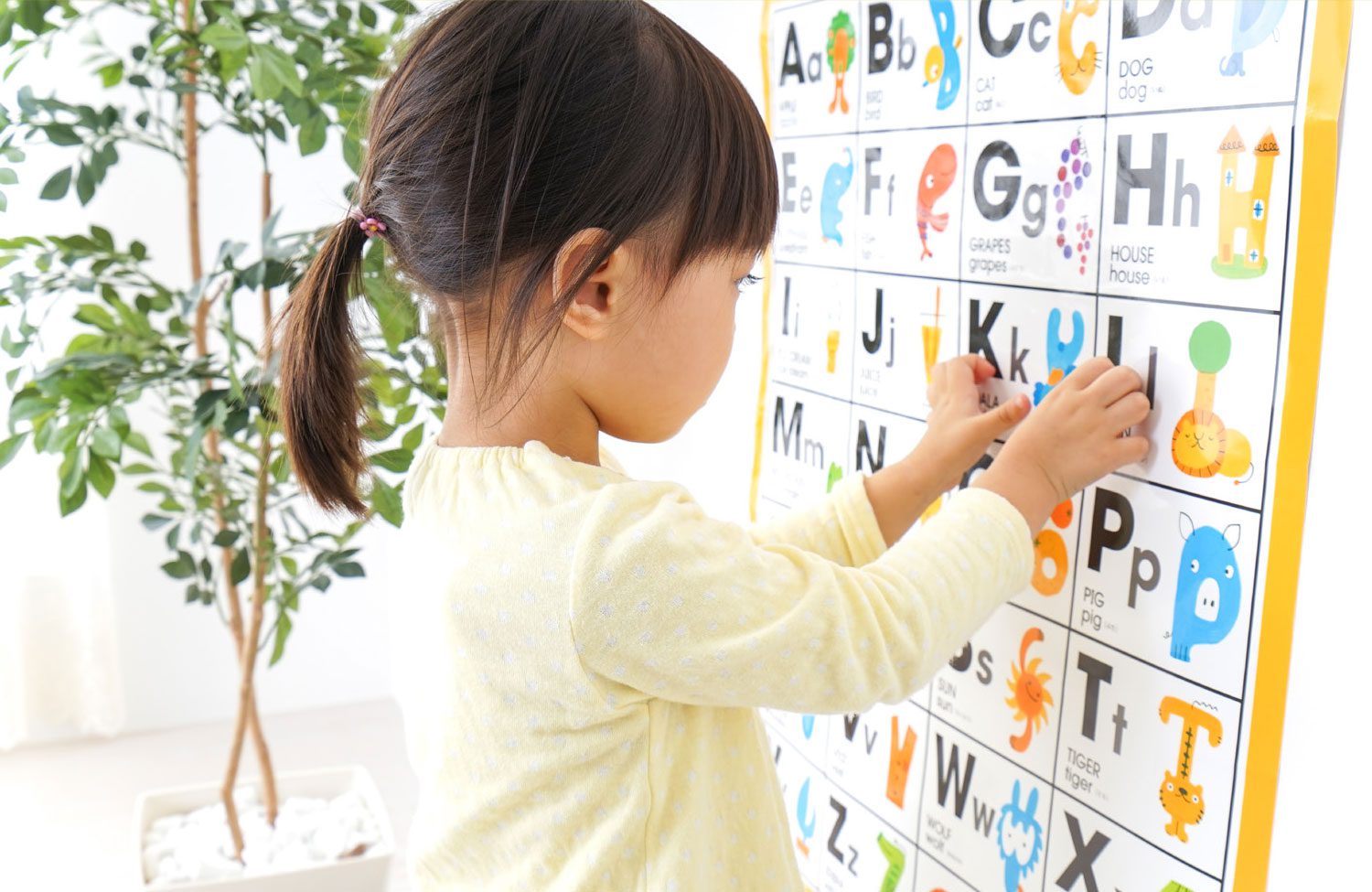
We learned about letters today.
We talked about animals.
We played “Simon Says”!
Strong language and communication skills play a vital role in school readiness.
Receptive language and communication skills like listening and reading help children develop their cognitive abilities, follow rules and instructions, solve problems and participate in social interactions.
Expressive skills such as writing, speaking, sign language, facial expressions and gestures like waving or pointing enable children to connect with others and share their wants, needs, feelings and opinions.
Five ways to foster strong language and communication skills:
- Engage in conversations with young children throughout the day, from breakfast to bedtime.
- While reading out loud, ask what is happening in the story and how the character might be feeling.
- Play “Simon Says” and other games that require children to listen and follow directions.
- Point out letters or objects and say the name of the letter or object.
- Ask children to create a mini-book with words and drawings to tell a story.
Now that you know more about language and communication, try these fun ideas and activities
Health and Physical Development
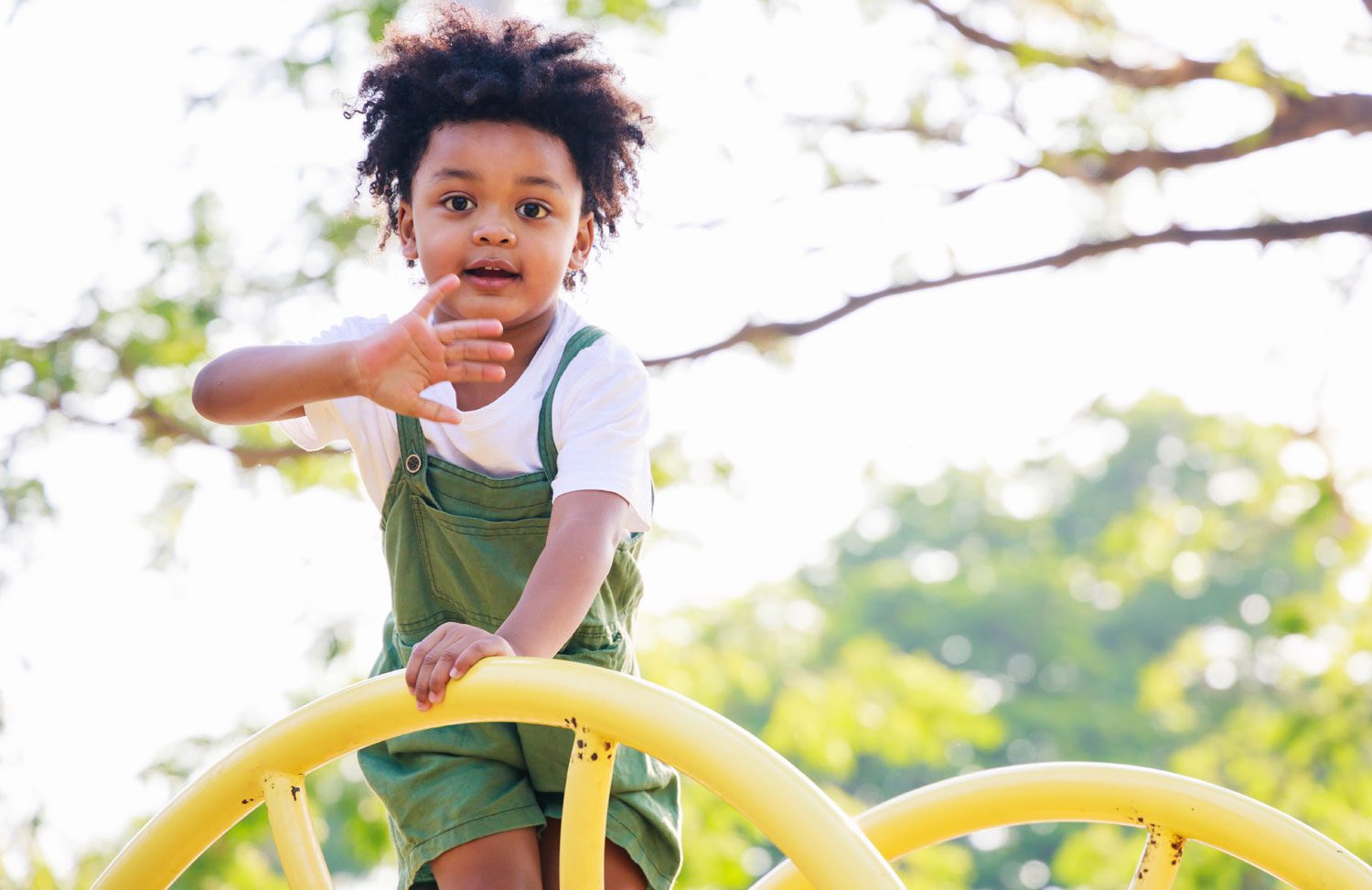
I climbed super high.
I made a dog out of playdough.
We had a dance party!
Children who are healthy, well-rested and well-nourished— and follow health and safety practices such as hand-washing and wearing a bike helmet—miss less school and are more engaged in school activities.
Young children also need the time, space and opportunity to move—in big and small ways. Activities that promote the development of gross- and fine-motor skills lead to better academic performance, improved focus and greater persistence during difficult tasks.
Five ways to foster health and physical development:
- Make sure kids get a daily dose of active outdoor play such as climbing, running or hopscotch to develop gross-motor skills and build strength, endurance and coordination.
- Engage children in active games such as tag, follow the leader or tug of war.
- Crank up the music and have a dance party!
- Set up an arts and crafts corner where kids can cut, paste, draw or string beads to develop their fine-motor skills, which are essential for activities such as gripping a pencil and tying shoelaces.
- Promote healthy growth and development with nutritious meals and snacks.
Now that you know more about the growing body, try these fun ideas and activities
Now that you know more about the road to readiness, try out these fun ideas and activities